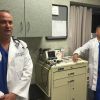- 1-Understanding-Heart-Disease-and-Family-History-Risks
- 2-Genetic-Factors-and-Hereditary-Risk
- 3-How-Family-History-Influences-Heart-Disease-Development
- 4-Lifestyle-and-Environmental-Contributions
- 5-Real-Life-Stories-Highlight-Family-History-Impact
- 6-Strategies-to-Manage-and-Reduce-Risk
- 7-Importance-of-Regular-Screenings-and-Professional-Care
Understanding Heart Disease and Family History Risks
Heart disease remains one of the leading causes of death in the United States, and understanding your family history can provide critical insight into your personal risk. Having relatives who have experienced heart attacks, strokes, or other cardiovascular conditions increases your susceptibility due to shared genetic and lifestyle factors.
Family history risk is a complex interplay of inherited genes and environmental influences that collectively affect how your heart and blood vessels function. Knowing these risks empowers you to take proactive steps toward prevention and early intervention.
Genetic Factors and Hereditary Risk
Certain genetic mutations and inherited conditions significantly elevate heart disease risk. For example, familial hypercholesterolemia—a genetic disorder causing high cholesterol levels—can lead to premature heart attacks. Similarly, some families have inherited tendencies for hypertension, arrhythmias, or cardiomyopathies.
Genetic testing and counseling can identify these hereditary risks, guiding targeted prevention and treatment strategies. Although you cannot change your genes, awareness allows for vigilant monitoring and lifestyle adjustments to mitigate their effects.
How Family History Influences Heart Disease Development
Family history affects not only genetic predispositions but also shared behaviors such as diet, physical activity, and stress management. Children often adopt the habits of their parents, which can either amplify or reduce heart disease risks.
Medical research indicates that individuals with a strong family history often develop heart disease earlier than those without. This increased risk underscores the importance of regular cardiovascular checkups and personalized risk assessments based on family history.
Lifestyle and Environmental Contributions
While genetics play a crucial role, lifestyle choices profoundly influence heart disease outcomes. Smoking, poor diet, sedentary behavior, and chronic stress can exacerbate hereditary risks. Conversely, adopting heart-healthy habits can significantly lower your chance of developing disease even if your family history is concerning.
Environmental factors like exposure to pollution or socioeconomic stressors also impact heart health, sometimes interacting with genetic vulnerabilities to increase disease risk.
Real-Life Stories Highlight Family History Impact
Consider the story of John, whose father and grandfather both suffered heart attacks before age 55. Recognizing his family history, John adopted a strict exercise regimen, healthy diet, and regular screenings. At 50, he remains heart-healthy and actively manages his risk with his cardiologist’s support.
On the other hand, Lisa was unaware of her family’s history until she experienced warning signs herself. Her story illustrates the importance of family health conversations and early detection to prevent serious outcomes.
Strategies to Manage and Reduce Risk
Even with a family history of heart disease, effective strategies exist to manage and reduce risk. Key approaches include:
1. Adopting a balanced diet rich in fruits, vegetables, and whole grains.
2. Engaging in regular physical activity tailored to your health.
3. Avoiding tobacco use and managing alcohol intake.
4. Controlling blood pressure, cholesterol, and diabetes with medical guidance.
5. Stress reduction techniques such as mindfulness or counseling.
These lifestyle interventions combined with medical monitoring create a comprehensive defense against hereditary heart disease.
Importance of Regular Screenings and Professional Care
Routine cardiovascular screenings are essential for those with family history risks. Early detection of high blood pressure, elevated cholesterol, or other markers allows timely treatment and prevention.
Working closely with healthcare providers at HeartCare Hub can provide personalized care plans. Their expertise helps individuals understand their risks and adopt strategies to protect heart health effectively.
Taking proactive steps today can change the course of hereditary heart disease and support a longer, healthier life.




















